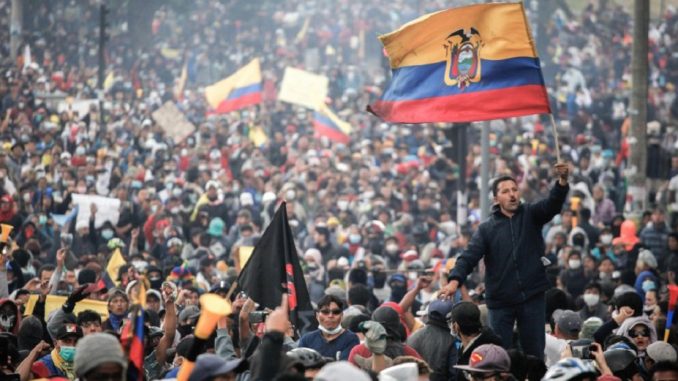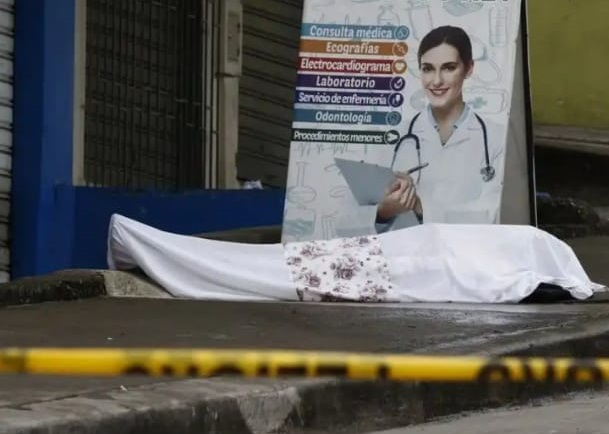
By Alberto Giovanelli
In an atypical context, on February 7, Ecuadorians will vote in the midst of a strong political, economic and institutional crisis crossed by the pandemic. The last years of former Rafael Correa sucessor, Lenín Moreno, in the presidency were very complicated. He not only had to deal with the economic and social collapse after the popular uprisings at the end of 2019, but he had to face the health crisis in one of the countries that was hardest hit by the virus. The Government could not hide its absolute inefficiency reflected in images such as those seen in Guayaquil with hundreds of deceased abandoned on public roads, collapsed funeral homes and insufficient social responses for the vast majority of the population. In the end, the measures exacerbated the economic problem. Unemployment skyrocketed, and the price of oil plummeted.
From the moment Lenin Moreno took office as president in 2017, anointed by Correa after serving as Correa´s vice president, he directed his efforts to delegitimize the man who took him to office. But his plan had the opposite effect. Despite the fact that Correa is in exile in Belgium due to legal proceedings against him for numerous cases of corruption, he continues to be a very influential factor in Ecuadorian politics, and he constantly appeals to correísmo as the culprit for the inefficiency of Lenin’s government. He has prevented Correa’s name staying in the past. Many people believe that with Correa they had greater opportunities to access health or education and that things were better.
Now, Correa’s name materializes in a new presidential candidate, Andrés Arauz, a young former government official of his mentor, an economist trained in the US with good relations with large international operators.
A candidate for the Union for Hope (Unes) movement, Arauz has the best chances of reaching the presidency, he leads in the polls and faces the challenge of winning in the first round. In a second round, the outlook for Arauz could get complicated. His direct rival is conservative Guillermo Lasso, a 65-year-old banker and politician from the Creo party, a candidate for the third time from the traditional right. Yaku Pérez, of the Pachakutik indigenous political movement, also enters the dispute. These three candidates stand out among the 16 formulas that were presented, the vast majority as expressions of the right or center right that could not advance in unity to confront Correísmo and that seem to have no chance, since the percentage of votes that they may achieve would not alter the overall results. We also have to highlight the absence of a true opposition from the left that expresses, among other processes, the insurrection of 2019, since for now all the parties of the regime, correístas and anti correístas, have managed to channel the entire process to the dead end of the bourgeois institutionality.
The electoral struggle thus took a known course. For the Lassistas, Correísmo is the monster to be rid of, comparing an Arauz victory with the current catastrophe in Venezuela. For Correísmo, the formula is the same, but the monster is the banking crisis suffered by the country in 1999 and the loss of conquests that the right demands. In any case, the two campaigns appeal to fear, without anticipating how they would face the country´s real problems, Arauz’s uncertainty about what he will do with the debt with international organizations, specifically whether he will pay or not, generates skepticism in one sector, not less even among the voters of Correísmo. It is not surprising then that the polls also anticipate significant abstention from participation and also a higher percentage of blank votes.
Meanwhile, Ecuadorians remain concerned about covid-19, a factor that could also be decisive in the election. The pandemic will be one of the issues that the new president decides, and perhaps that is the reason why many candidates offer, in a demagogic way, to ‘negotiate’ the arrival of more vaccines or even carry out ‘rapid tests’ for covid as part of their campaign. Arauz recently announced an unconfirmed agreement with Alberto Fernandez so that if he wins, the Argentine Government will send him millions of doses of the Russian vaccine, an absolutely unlikely decision according to the very restrictions that Argentina is facing in receiving the vaccines…

Some perspectives
If Lasso wins, Ecuador would revalidate the free trade agreements signed by Moreno and bet on deepening relations with the United States.
If Arauz wins, it remains to be seen if Ecuador will make a drastic change with respect to its international policy and if it will push for concrete actions against the IMF. Until today, we must warn of the lack of definition on these issues, and it has only flaunted its alliance with Latin American political sectors that, beyond their statements, end up yielding to the demands of the major international creditors. However, the possibility of a policy change is what has brought together the majority of the Ecuadorian left behind Arauz’s candidacy.
The truth is that whoever reaches the Carondelet Palace (Government House) will find the economy in tatters, a collapsed health system and a fragmented society that mistrusts all politicians, that is why we believe as always, that the future of the Ecuador will define itself in the streets, with the demonstrated capacity to mobilize the Ecuadorian people and the indispensable development of independent organizations of the different sectors of the bourgeoisie, the churches and imperialism.








